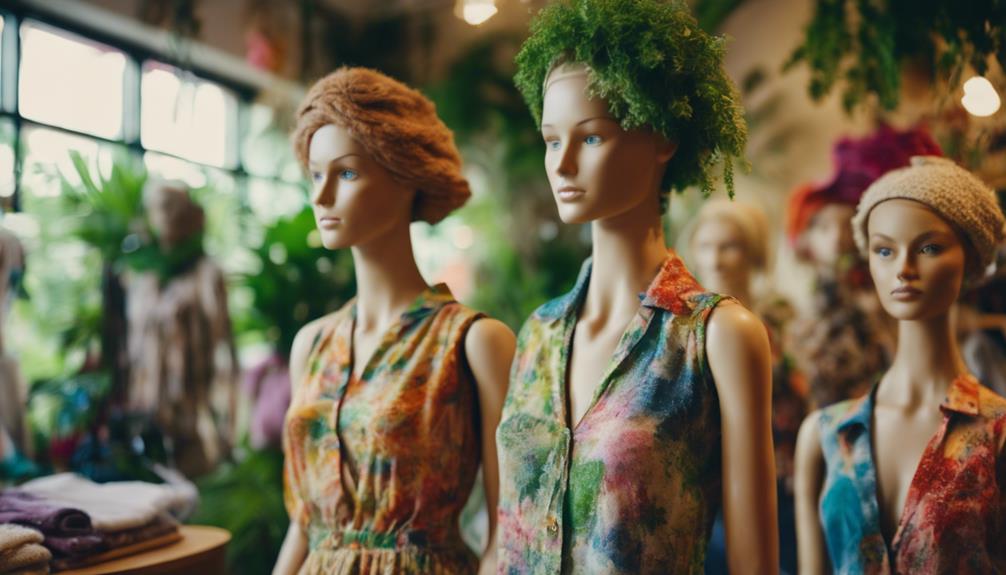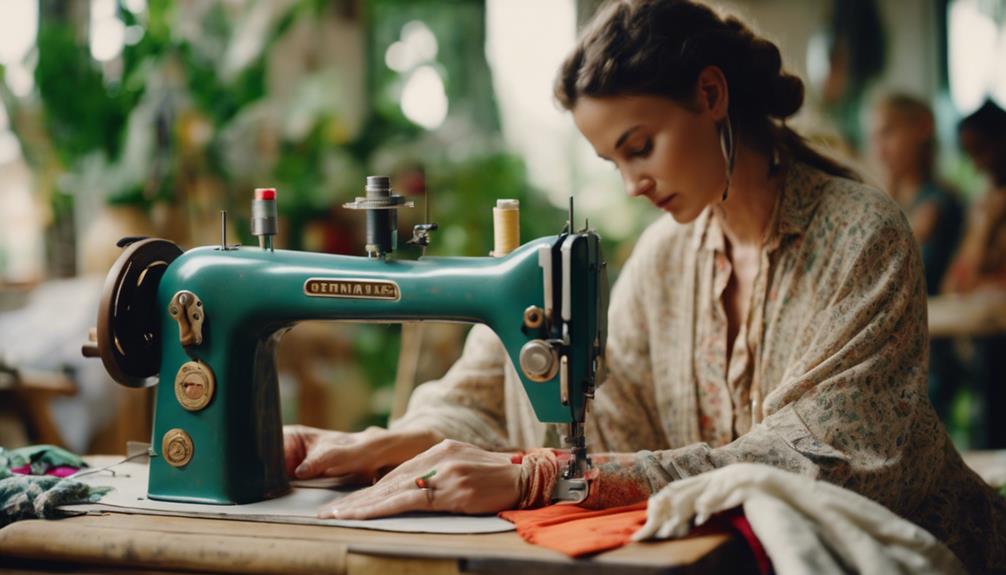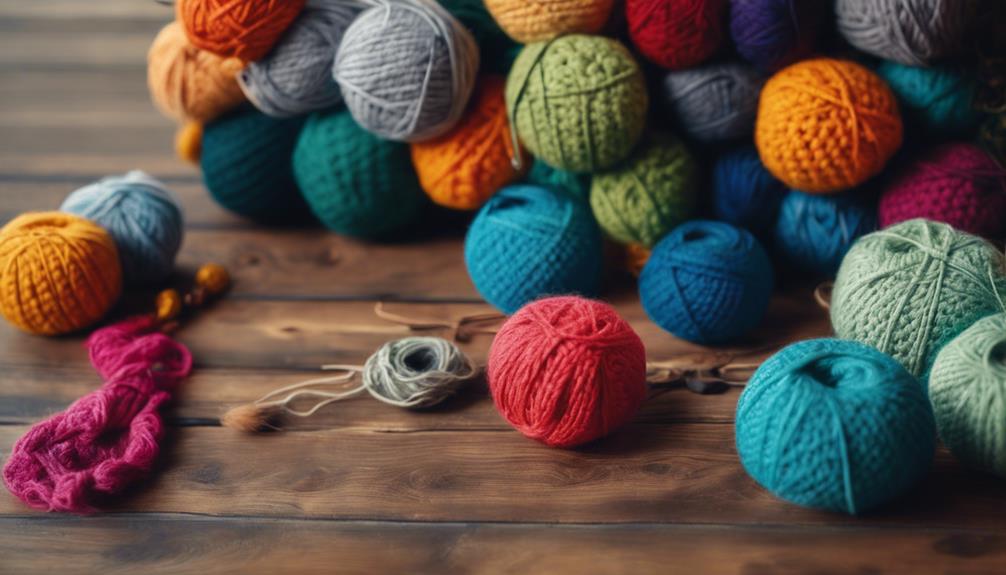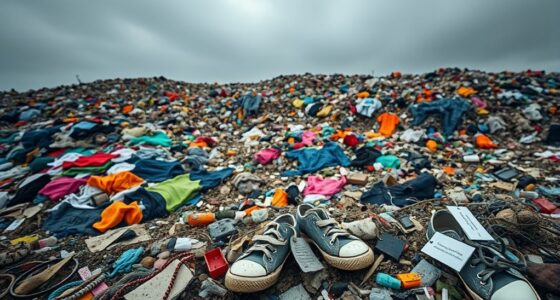Ethical and sustainable fashion goes beyond just being stylish; it revolves around ethical choices and responsible practices. For a brand to be considered sustainable, they must ensure fair labor conditions, use eco-friendly materials, and prioritize environmental health. Certifications like GOTS and BCI are crucial as they offer transparency and credibility, preventing greenwashing. Incorporating high-quality organic, recycled, or biodegradable materials is also key. Brands should openly disclose their supply chain practices to establish trust with consumers. With sustainability becoming increasingly important for many, the criteria may be surprising. Stay tuned for more insights on what truly makes fashion sustainable! Ethical and sustainable fashion also encompasses considering the social impact of the industry, like supporting local communities and indigenous artisans, along with promoting gender equality and fair wages. It’s not just about the clothes we wear, but the values and principles driving real change in the world. As consumers become more educated and socially responsible, the demand for ethical and sustainable fashion will only continue to rise, paving the way for positive transformation in the industry.
Key Takeaways
- Sustainable fashion prioritizes ethical production, ensuring fair wages and safe working conditions while avoiding practices like child labor.
- It promotes the use of high-quality, organic, and recycled materials to minimize environmental impact.
- Circular material flow and closed-loop systems are essential to reduce waste in the fashion industry.
- Certifications like GOTS and BCI build trust by verifying brands' sustainability claims through third-party assessments.
Definition of Sustainable Fashion
Sustainable fashion means creating clothing, shoes, and accessories that prioritize financial viability, environmental health, and social responsibility to minimize harm to our planet and its people. When you choose sustainable fashion, you're opting for ethical production methods that guarantee fair wages and safe working conditions. This approach actively avoids practices like child labor, fostering a more equitable supply chain.
Moreover, sustainable fashion emphasizes circular material flow and closed-loop systems. This means that the products you buy are designed to last, be recycled, or reused, effectively reducing waste in the process. By supporting brands that focus on durability and longevity, you contribute to a fashion industry that respects both people and the planet.
Additionally, sustainable fashion incorporates high-quality, organic, and recycled materials, paired with eco-friendly production methods and packaging. This thoughtful approach not only minimizes emissions but also fosters a healthier environment. When you embrace sustainable fashion, you're not just making a style choice; you're participating in a movement that seeks to redefine the industry for the better and guarantee a sustainable future for all.
Importance of Certifications
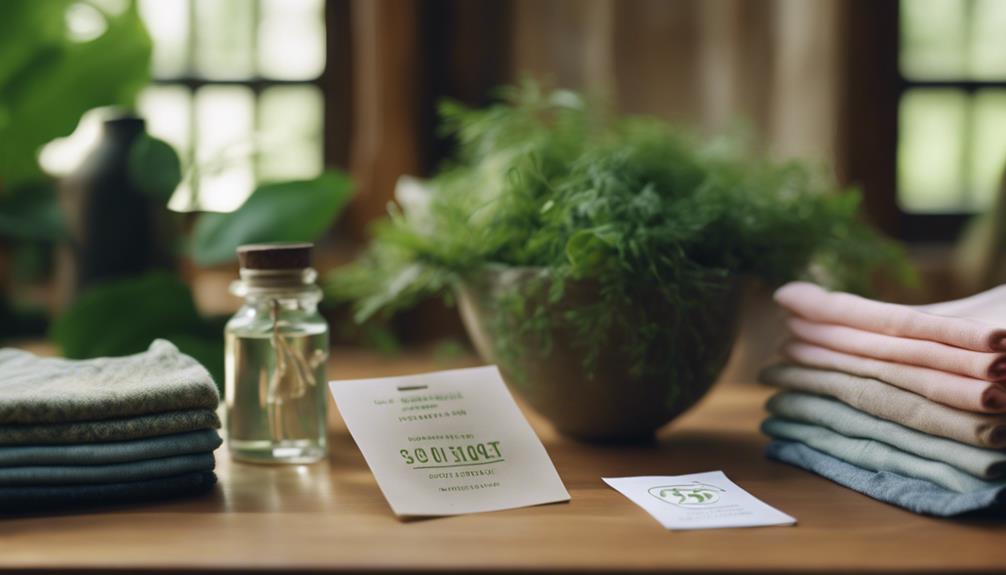
When you shop for sustainable fashion, certifications play a vital role in building your trust in a brand's claims.
These third-party verifications highlight key standards, helping you identify which products genuinely meet eco-friendly and ethical criteria.
Understanding the impact of these certifications can enhance your purchasing decisions and promote transparency in the fashion industry.
Trust Through Third-Party Verification
Trust in fashion brands grows considerably with third-party certifications that verify their commitment to eco-friendly and ethical practices. These fashion certifications provide independent assurance that brands adhere to specific standards, enhancing consumer confidence.
For example, certifications like the Global Organic Textile Standard (GOTS) and the Better Cotton Initiative (BCI) set clear benchmarks for sustainable materials and fair labor practices. This transparency allows you to make informed choices when shopping.
Moreover, the PETA Certification guarantees that products are completely free from animal exploitation, reinforcing commitments to cruelty-free fashion. Similarly, B Corp Certification evaluates companies on their environmental and social performance, holding them accountable to rigorous standards.
When brands display certification logos, they signal their adherence to these sustainability standards, which helps you avoid the pitfalls of greenwashing. You can trust that a certified brand has undergone a thorough review, giving you peace of mind that your fashion choices align with your values.
In a world flooded with marketing claims, these third-party certifications play an essential role in building trust and promoting transparency within the sustainable fashion industry.
Key Certification Standards Explained
Understanding key certification standards is essential for making informed choices in the sustainable fashion landscape. These certifications serve as a beacon, guiding you toward brands that genuinely prioritize eco-friendly and ethical practices.
For instance, the Global Organic Textile Standard (GOTS) guarantees that at least 70% of a product's fibers are organic, ensures safe chemical usage, and prohibits child labor. When you see this certification, you can trust that the sustainable brand meets high integrity standards.
Similarly, the Better Cotton Initiative (BCI) promotes sustainable farming practices, emphasizing biodiversity and fair wages for farmers. This means when you buy products from BCI-certified brands, you're supporting responsible cotton sourcing.
Additionally, if you're seeking vegan options, look for PETA certifications that confirm products are free from animal exploitation.
Another significant certification is the B Corp Certification, which evaluates a company's social and environmental performance, guaranteeing they adhere to rigorous accountability standards.
Impact on Consumer Choices
Certifications play a pivotal role in shaping your choices as a consumer in the sustainable fashion market. When you see labels like the Global Organic Textile Standard (GOTS) or the Better Cotton Initiative (BCI), you can feel confident that these brands have met specific criteria for sustainability. This independent verification helps you make informed decisions about your purchases.
Shopping platforms like Project Cece simplify your search for sustainable fashion by aggregating fairtrade brands and displaying certification logos. This transparency builds trust, allowing you to support brands that align with your values. In an industry rife with misleading claims and greenwashing, these certifications are essential. They help you distinguish between genuinely sustainable products and those that merely market themselves in that manner.
Research shows that you and many other consumers are more likely to choose brands with recognized certifications. This growing demand for transparency and accountability signals a shift in consumer behavior, encouraging more brands to adopt sustainable practices.
Notable Sustainable Fashion Certifications

When you're shopping for sustainable fashion, it's essential to recognize notable certifications that guarantee ethical practices.
Each certification has unique features that highlight its commitment to environmental and social standards.
Let's explore these certification types and what they mean for your purchasing decisions.
Certification Types Overview
In the evolving world of sustainable fashion, various certifications help you identify brands committed to ethical practices and environmental responsibility. When you're on the hunt for sustainable clothing, these certifications can guide you toward brands that prioritize the planet and people.
Here are three notable certifications to look for:
- Global Organic Textile Standard (GOTS): This certification guarantees textiles are made from organic fibers and produced under safe working conditions, eliminating harmful chemicals and child labor.
- Better Cotton Initiative (BCI): BCI promotes sustainable cotton farming, focusing on biodiversity, fair wages, and responsible water management, helping you choose cotton products that support ethical farming.
- PETA Certification: If you're seeking vegan products, this certification assures that items are completely free from animal exploitation throughout the production chain.
Key Features Explained
Understanding the key features of notable sustainable fashion certifications can help you make informed choices about the brands you support.
The Better Cotton Initiative (BCI) promotes sustainable cotton farming, emphasizing biodiversity, fair wages, and responsible water management. When you see BCI on clothing labels, you know the cotton is sourced ethically.
Next, the Global Organic Textile Standard (GOTS) guarantees that textiles are made from organic fibers, safeguarding safe working conditions and prohibiting child labor. This certification is vital for those seeking ethical fashion.
If you're looking for vegan options, the PETA Certification guarantees products are free from animal exploitation throughout the production chain. This certification is a strong indicator of ethical practices.
The B Corp Certification assesses a company's overall social and environmental performance. Brands with this certification prioritize sustainable practices, guaranteeing their products are free from harmful substances.
Lastly, the Responsible Jewellery Council (RJC) focuses on ethical sourcing in the jewelry industry, assuring that mining practices don't harm the environment or violate human rights.
Key Features of Certifications
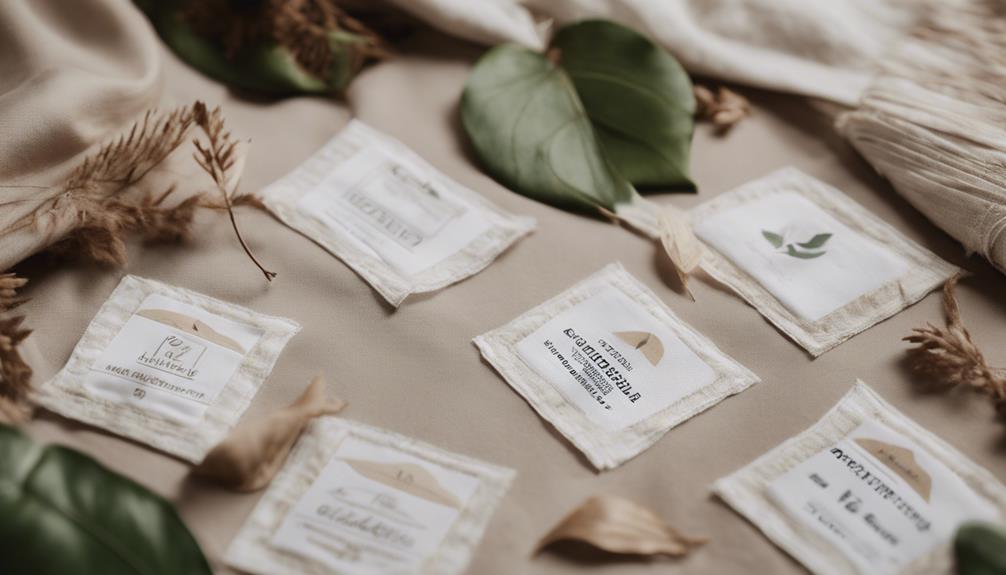
Sustainable fashion certifications set clear standards that guarantee products are produced ethically and environmentally responsibly. When you choose certified products, you can trust that they meet rigorous criteria.
Here are three key features of these certifications:
- Environmental Standards: Certifications like the Global Organic Textile Standard (GOTS) require a minimum organic fiber content of 70% and prohibit harmful substances. This guarantees safe production methods that protect our planet.
- Ethical Practices: The Better Cotton Initiative (BCI) promotes sustainable farming that focuses on biodiversity and fair wages for farmers. This means that when you buy BCI-certified cotton, you support not just sustainability but also social equity.
- Transparency: B Corp certification demands transparency and accountability from companies, guaranteeing they meet high standards of social and environmental performance across their operations. This commitment means you can feel good about your purchases.
Shopping Tips for Sustainability
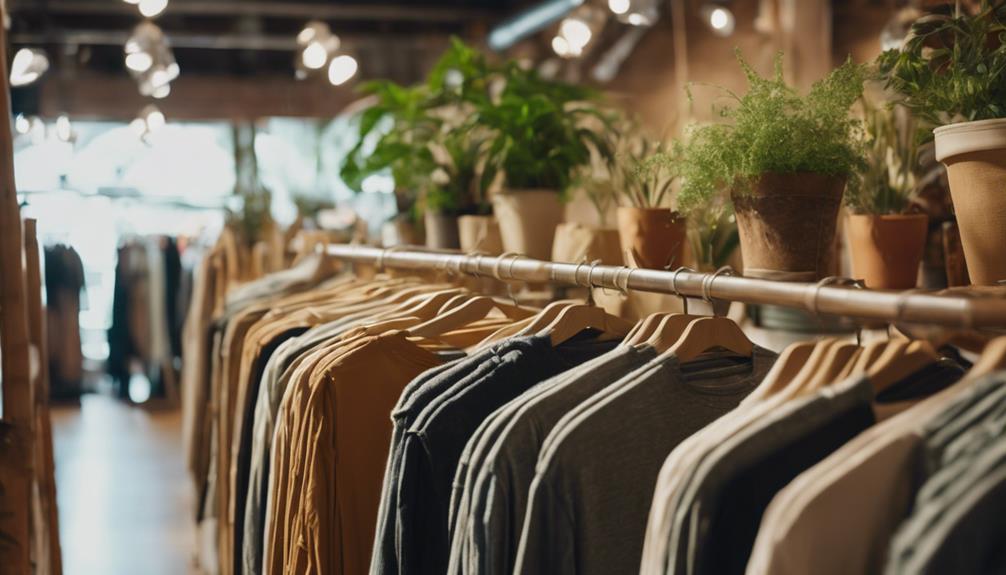
When shopping for clothes, look for certification logos like GOTS or BCI to guarantee you're choosing eco-friendly and ethical options. These certifications indicate that the items meet strict environmental and social standards.
Additionally, consider using platforms like Project Cece, which aggregate fairtrade brands and allow you to filter for sustainable fashion choices easily.
Research the materials used in garments you're interested in. Prioritize clothing made from organic, recycled, or biodegradable materials to minimize environmental impact. By choosing these fabrics, you contribute to a more sustainable fashion industry.
Also, pay attention to a brand's transparency regarding its supply chain and sustainability practices. Brands that openly share their information are often more credible, giving you confidence in your purchase.
Industry Challenges and Misconceptions
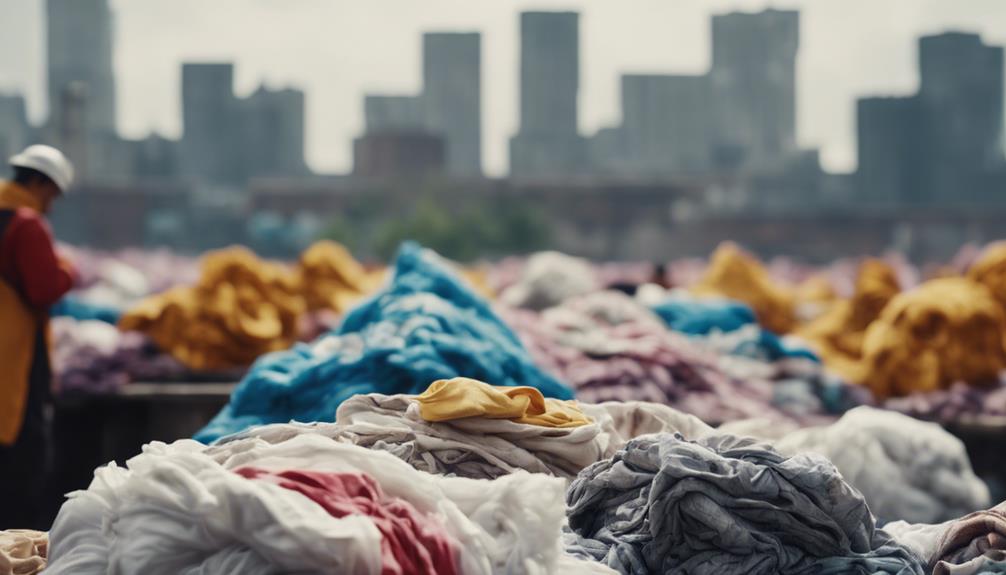
The fashion industry's struggle with greenwashing often leaves consumers confused about what truly constitutes sustainable practices. Brands frequently use minimal sustainable features to claim eco-friendliness, misleading you about their actual environmental impact. This ambiguity makes it hard for you to identify genuinely sustainable products.
Here are three key challenges you face in maneuvering sustainable fashion:
- Vague Objectives: Many brands set unclear sustainability goals, which allows them to maintain a façade of eco-friendliness without making substantial changes.
- Misleading Marketing: You might think buying 'less unsustainable' items is enough, but this misconception can prevent you from pursuing real sustainability.
- Lack of Consensus: With no universally accepted metrics for sustainability, it's challenging to compare brands and their practices effectively.
Despite the rise in sustainable fashion claims, the industry's overall environmental impact hasn't changed much in the last 25 years. The prevalence of non-biodegradable materials remains high, making it essential for you to be discerning.
Understanding these challenges helps you make better choices and pushes the industry towards genuine sustainability.
Need for Standards and Regulations
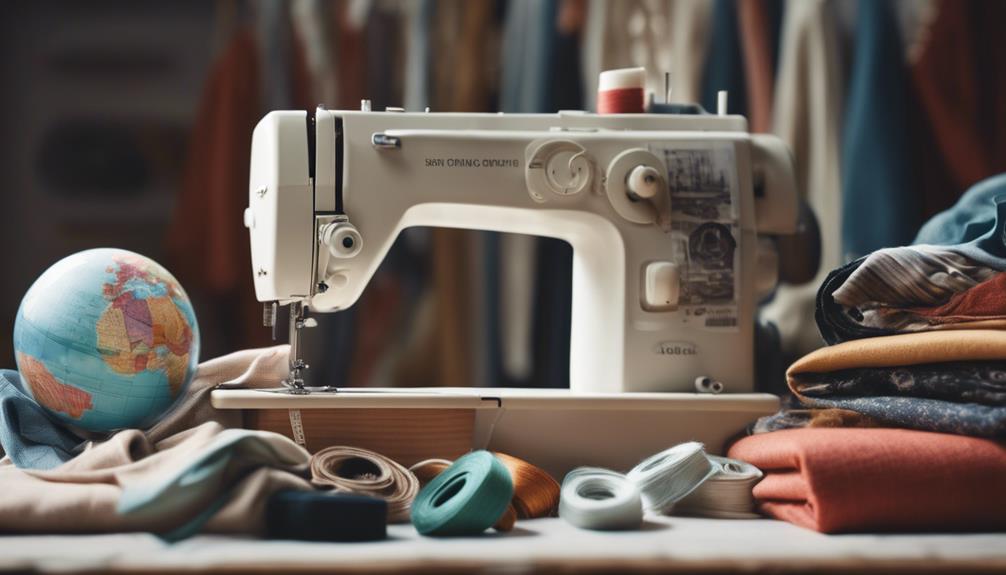
Clear standards and regulations are essential for combating greenwashing and helping you identify truly eco-friendly fashion brands.
With the fashion industry lacking clear definitions, it's tough for consumers like you to discern which brands genuinely prioritize sustainability. Regulatory initiatives, such as the proposed Fashion Act in the US and various EU directives, aim to establish necessary standards for environmental and social accountability.
As emerging bodies endeavor to create sustainability benchmarks, concerns about the reliability of assessment tools and data integrity linger.
The fragmented nature of existing laws, including the Fabric Act, underscores the urgent need for cohesive regulations that address climate, labor, and waste management across the global supply chain.
Fast fashion continues to thrive in this regulatory void, suggesting that robust frameworks could promote genuine sustainable practices and level the playing field for all brands.
Future of Sustainable Fashion
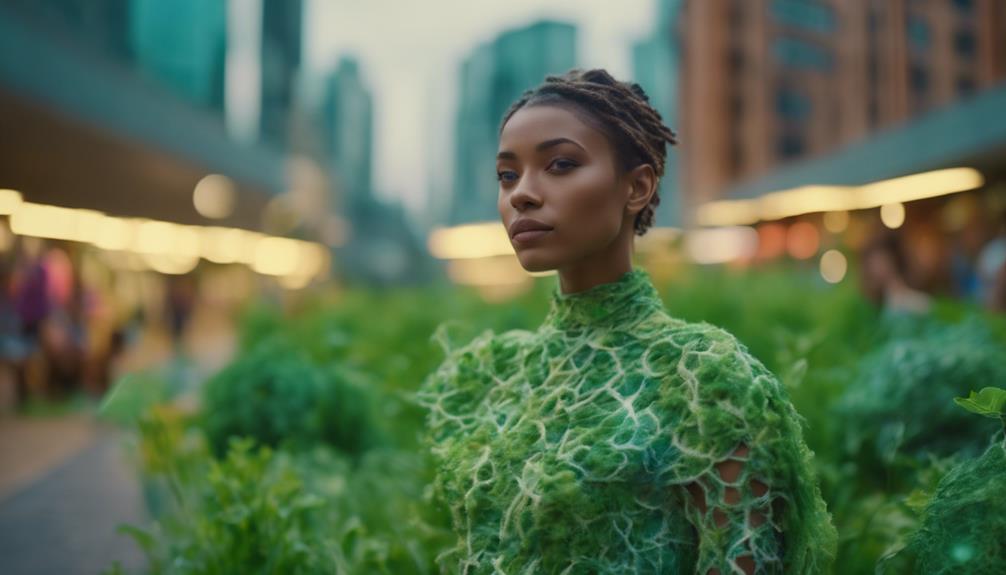
A systemic shift towards circular fashion models is crucial for creating a sustainable future that prioritizes longevity and reduces waste throughout the entire supply chain.
You'll see that collaboration among industry stakeholders is essential for developing effective benchmarks and tackling the challenges related to sustainable fashion.
Here are three key areas to focus on:
- Regulatory Frameworks: Emerging regulations, particularly from the EU and US, are setting necessary standards for sustainability. These laws promote accountability and help unify existing guidelines.
- Transparency: By emphasizing transparency in sourcing and production processes, brands can build trust and credibility. When you know where your clothes come from, you can make informed choices.
- Innovation: Encouraging innovation in sustainable materials and production methods will drive the industry forward. As new technologies emerge, they can considerably reduce environmental impacts.
As you explore sustainable fashion, keep these elements in mind. They're integral to a future where fashion can thrive without compromising the planet.
With collective efforts, the industry can create a more responsible and eco-friendly landscape for you and future generations.
Consumer Education and Behavior

Understanding sustainable fashion isn't just about knowing the industry's future; it's about how your purchasing decisions impact the planet today. Consumer education plays a vital role in this process.
Many shoppers are unaware of the true environmental costs of their purchases, with only 24% understanding what sustainable fashion really means. This lack of awareness can lead to confusion and poor choices.
When you're informed, you're more likely to choose eco-friendly products. In fact, 66% of global consumers indicated they'd pay more for brands committed to sustainability.
However, misleading claims and greenwashing complicate matters. While 80% of consumers believe they're buying sustainable products, only 25% actually are. This highlights the urgent need for clearer definitions and standards in the industry.
Frequently Asked Questions
What Is Not Sustainable Fashion?
Unsustainable fashion includes fast fashion brands, greenwashing tactics, unethical labor practices, reliance on virgin materials, and lack of transparency in supply chains. These practices harm the environment and society, undermining the principles of sustainability you value.
What Are the Characteristics of Sustainable Fashion?
Sustainable fashion's characteristics include eco-friendly materials, ethical labor practices, circularity, and transparency in supply chains. By prioritizing these elements, you can contribute to reducing waste and supporting fair working conditions in the fashion industry.
How Do You Know if Fashion Is Sustainable?
You can know if fashion's sustainable by checking for certifications like GOTS, looking for eco-friendly materials, and ensuring transparency in the supply chain. Apps like 'Good on You' help you compare brands' sustainability ratings easily.
What Are the Key Principles of Sustainable Fashion?
When considering sustainable fashion, you'll focus on ethical production, fair wages, and safe conditions. You'll value longevity, repairability, and cruelty-free practices while ensuring minimal environmental impact and integrating social responsibility into your choices.
Conclusion
So, you thought sustainable fashion was just wearing hemp and calling it a day? Think again!
With a maze of certifications and a laundry list of criteria, it's like trying to navigate a labyrinth in stilettos.
But don't fret—just remember: if your clothes aren't certified by at least three eco-gurus, you might as well be draping yourself in plastic wrap.
Who knew saving the planet could be so complicated?
Time to get your sustainability game on!


